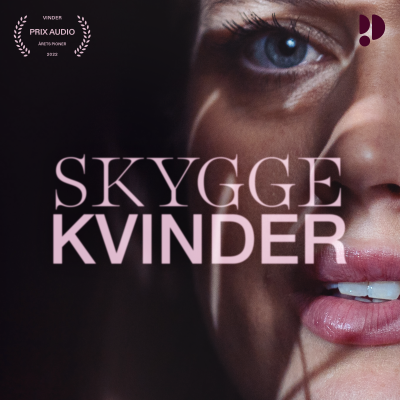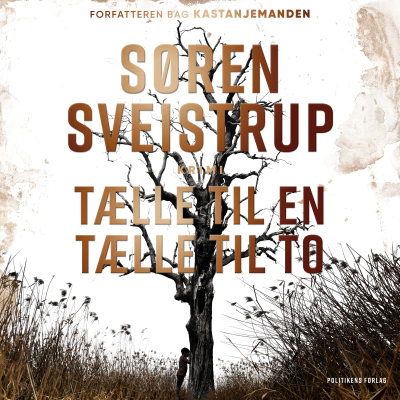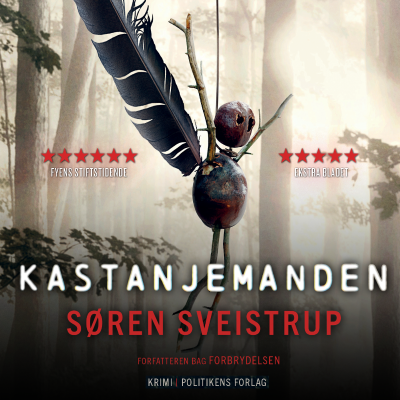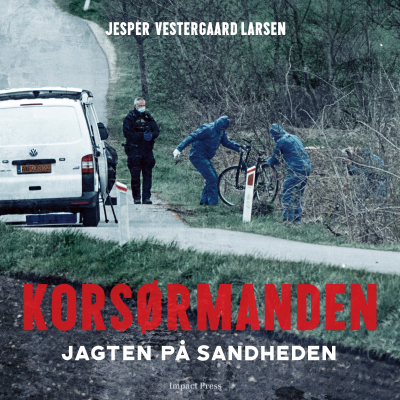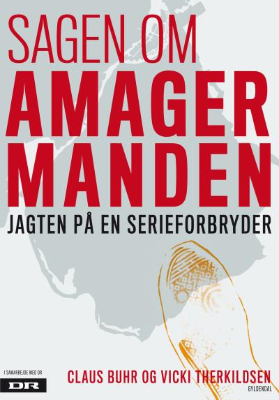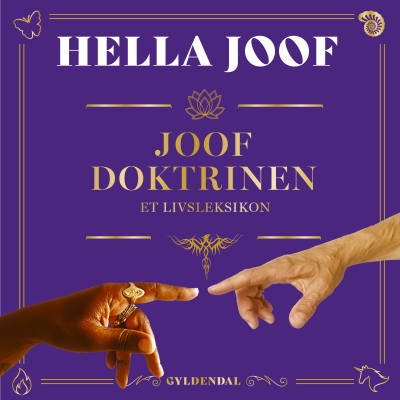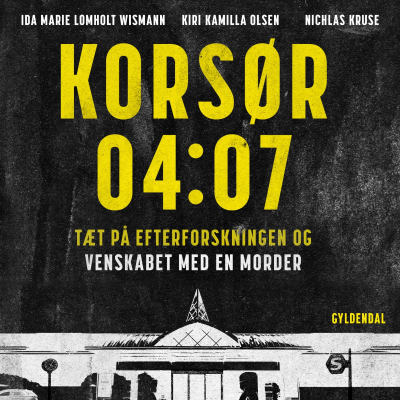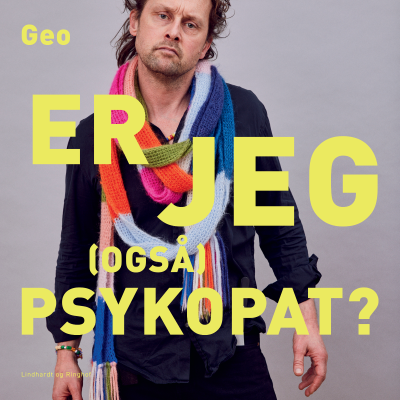
Big Picture Science
Podcast af Seth Shostak, Molly Bentley, SETI Institute
The surprising connections in science and technology that give you the Big Picture. Astronomer Seth Shostak and science journalist Molly Bentley are joined each week by leading researchers, techies, and journalists to provide a smart and humorous take on science. Our regular "Skeptic Check" episodes cast a critical eye on pseudoscience.
Begrænset tilbud
3 måneder kun 9,00 kr.
Derefter 99,00 kr. / månedIngen binding.
Alle episoder
410 episoderEclectic Company We present a grab bag of our favorite recent science stories – from how to stop aging to the mechanics of cooking pasta. Also, in accord with our eclectic theme – the growing problem of space junk. Guests: * Anthony Wyss-Coray [http://web.stanford.edu/group/twclab/cgi-bin/]– Professor of neuroscience at Stanford University * Oliver O’Reilly [https://me.berkeley.edu/people/oliver-oreilly/]– Professor of mechanical engineering, University of California Berkeley. * Moriba Jah [https://www.ae.utexas.edu/people/faculty/faculty-directory/jah]– Professor of aerospace and engineering mechanics, University of Texas
Okay you animals, line up: stoned sloths, playful pandas, baleful bovines, and vile vultures. We’ve got you guys pegged, thanks to central casting. Or do we? Our often simplistic view of animals ignores their remarkable adaptive abilities. Stumbly sloths are in fact remarkably agile and a vulture’s tricks for thermoregulation can’t be found in an outdoors store. Our ignorance about some animals can even lead to their suffering and to seemingly intractable problems. The South American nutria was brought to Louisiana to supply the fur market. But the species got loose and tens of millions of these rodents are destroying the environment. It literally has a bounty on its tail. Hear about research that corrects a menagerie of misunderstandings about our fellow furry, feathered, and scaly animals, and how getting over ourselves to know them better can have practical benefits. Will you still recoil from termites if you learn that they are relevant to the future of robots, global warming, and smart design? Guests: * Lucy Cooke [http://www.lucycooke.tv/about]– Zoologist, broadcaster and author of “The Truth About Animals: Stoned Sloths, Lovelorn Hippos, and Other Tales from the Wild Side of Wildlife [https://www.amazon.com/gp/product/0465094643/ref=as_li_tl?ie=UTF8&tag=arweal-20&camp=1789&creative=9325&linkCode=as2&creativeASIN=0465094643&linkId=e4b17ea2277ec4fc23136a63b74f0fe5] ” * Chris Metzler [http://www.tilapiafilm.com/metzler.html]– Co-director and producer of the filmRodents of Unusual Size * Lisa Margonelli [https://lisamargonelli.com/about]– Journalist and author of "Underbug: An Obsessive Tale of Termites and Technology [https://www.amazon.com/gp/product/0374282072/ref=as_li_tl?ie=UTF8&camp=1789&creative=9325&creativeASIN=0374282072&linkCode=as2&tag=arweal-20&linkId=01abf24d4d494acd5255c611b4d90da6] " Originally aired October 8, 2018
“Diversity or die” could be your new health mantra. Don’t boost your immune system, cultivate it! Like a garden, your body’s defenses benefit from species diversity. Find out why multiple strains of microbes, engaged in a delicate ballet with your T-cells, join internal fungi in combatting disease. Plus, global ecosystems also depend on the diversity of its tiniest members; so what happens when the world’s insects bug out? Guests: * Matt Richtel [https://www.mattrichtel.com/]– Author, most recently, of “An Elegant Defense: The Extraordinary New Science of The Immune System [https://www.amazon.com/gp/product/0062698532/ref=as_li_tl?ie=UTF8&tag=arweal-20&camp=1789&creative=9325&linkCode=as2&creativeASIN=0062698532&linkId=d76f7d885337a06759945b3bd97ea7c2] ” * Rob Dunn [http://robdunnlab.com/people/rob-dunn/]– Biologist and professor in the Department of Biological Sciences at North Carolina State University. Author of “Never Home Alone [https://www.amazon.com/gp/product/1541645766/ref=as_li_tl?ie=UTF8&tag=arweal-20&camp=1789&creative=9325&linkCode=as2&creativeASIN=1541645766&linkId=822dafdaf954dbafd28a66b07e576389] ” * David Underhill [https://bio.csmc.edu/view/15170/David-Underhill.aspx]– Professor of medicine, Cedars-Sinai Hospital, Los Angeles, California * Anne Sverdrup-Thygeson [https://www.nmbu.no/fakultet/mina/forskning/prosjekter/anne-sverdrup-thygeson/anne] – Professor in conservation biology at the Institute for Ecology and Nature Management at the Norwegian University of Life Sciences. Author of “Buzz, Sting, Bite: Why We Need Insects [https://www.amazon.com/gp/product/1982112875/ref=as_li_tl?ie=UTF8&camp=1789&creative=9325&creativeASIN=1982112875&linkCode=as2&tag=arweal-20&linkId=c7d6edfb78b614ed031f1b0c76fb6130] ” Originally aired August 12, 2019
Earth invades Mars in February. In a historic trifecta for space exploration, spacecraft of three countries will arrive at Mars, and for two of those it will be their first time at the Red Planet. We talk to the science lead for the Emirates Mars Mission, a NASA engineer piloting the first helicopter on Mars, and a British space expert – all to learn how these spacecraft may bring greater understanding of this rusty world – including whether Mars ever supported life. Guests: * Sarah Cruddas [https://sarahcruddas.com/]- Space journalist, broadcaster, and author of “Look Up: Our Story with the Stars [https://www.amazon.com/gp/product/0008358273/ref=as_li_qf_asin_il_tl?ie=UTF8&tag=arweal-20&creative=9325&linkCode=as2&creativeASIN=0008358273&linkId=1caede63b4ce23d4e10065c3ce9c4953] ” * Sarah Al Amiri [https://ae.linkedin.com/public-profile/in/sarah-al-amiri-3515b898?challengeId=AQHHKndVWrqc4AAAAXdfgKCvghvPwcYih-0S3vaHr9eKMJmYbNBUxXJIgvpTykWuh11yNsiptBRR-U1AZFHZXUkI_zV77wflcg&submissionId=0a452b62-00bd-5f16-61a2-52d22ba3064f] - United Arab Emirates Minister of State for Advanced Sciences as well as science lead for theEmirates Mars Mission [https://www.science.gov.ae/] * Håvard Grip [https://www-robotics.jpl.nasa.gov/people/Havard_Grip/]- Chief Pilot and Light Control Lead for Ingenuity Mars Helicopter at NASA Jet Propulsion Laboratory
Maybe you don’t remember the days of the earliest coal-fired stoves. They changed domestic life, and that changed society. We take you back to that era, and to millennia prior when iron was first smelt, and even earlier, when axe-handles were first fashioned from wood, as we explore how three essential materials profoundly transformed society. We were once excited about coal’s promise to provide cheap energy, and how iron would lead to indestructible bridges, ships, and buildings. But they also caused some unintended problems: destruction of forests, greenhouse gases and corrosion. Did we foresee where the use of wood, coal, and iron would lead? What lessons do they offer for our future? Guests: * Jonathan Waldman [https://www.simonandschuster.com/authors/Jonathan-Waldman/404903220]– Author ofRust: The Longest War [https://www.amazon.com/gp/product/1451691602/ref=as_li_qf_asin_il_tl?ie=UTF8&tag=arweal-20&creative=9325&linkCode=as2&creativeASIN=1451691602&linkId=f99ef45fdf2b35efe49ca705c2871916] . * Ruth Goodman [https://www.ruthgoodman.me.uk/]– Historian of British social customs, presenter of a number of BBC television series, includingTudor Monastery Farm, and the author ofThe Domestic Revolution: How the Introduction of Coal into Victorian Homes Changed Everything. [https://www.amazon.com/gp/product/1631497634/ref=as_li_qf_asin_il_tl?ie=UTF8&tag=arweal-20&creative=9325&linkCode=as2&creativeASIN=1631497634&linkId=ec8dc1ffe7bbe76b8f0a05df13b1e226] * Roland Ennos [https://www.sciencefactory.co.uk/roland-ennos]– Professor of biological sciences at the University of Hull and author ofThe Age of Wood: Our Most Useful Material and the Construction of Civilization. [https://www.amazon.com/gp/product/1982114738/ref=as_li_qf_asin_il_tl?ie=UTF8&tag=arweal-20&creative=9325&linkCode=as2&creativeASIN=1982114738&linkId=95e967a0c1fe46390026decb47966f6b]
Begrænset tilbud
3 måneder kun 9,00 kr.
Derefter 99,00 kr. / månedIngen binding.
Eksklusive podcasts
Uden reklamer
Gratis podcasts
Lydbøger
20 timer / måned

